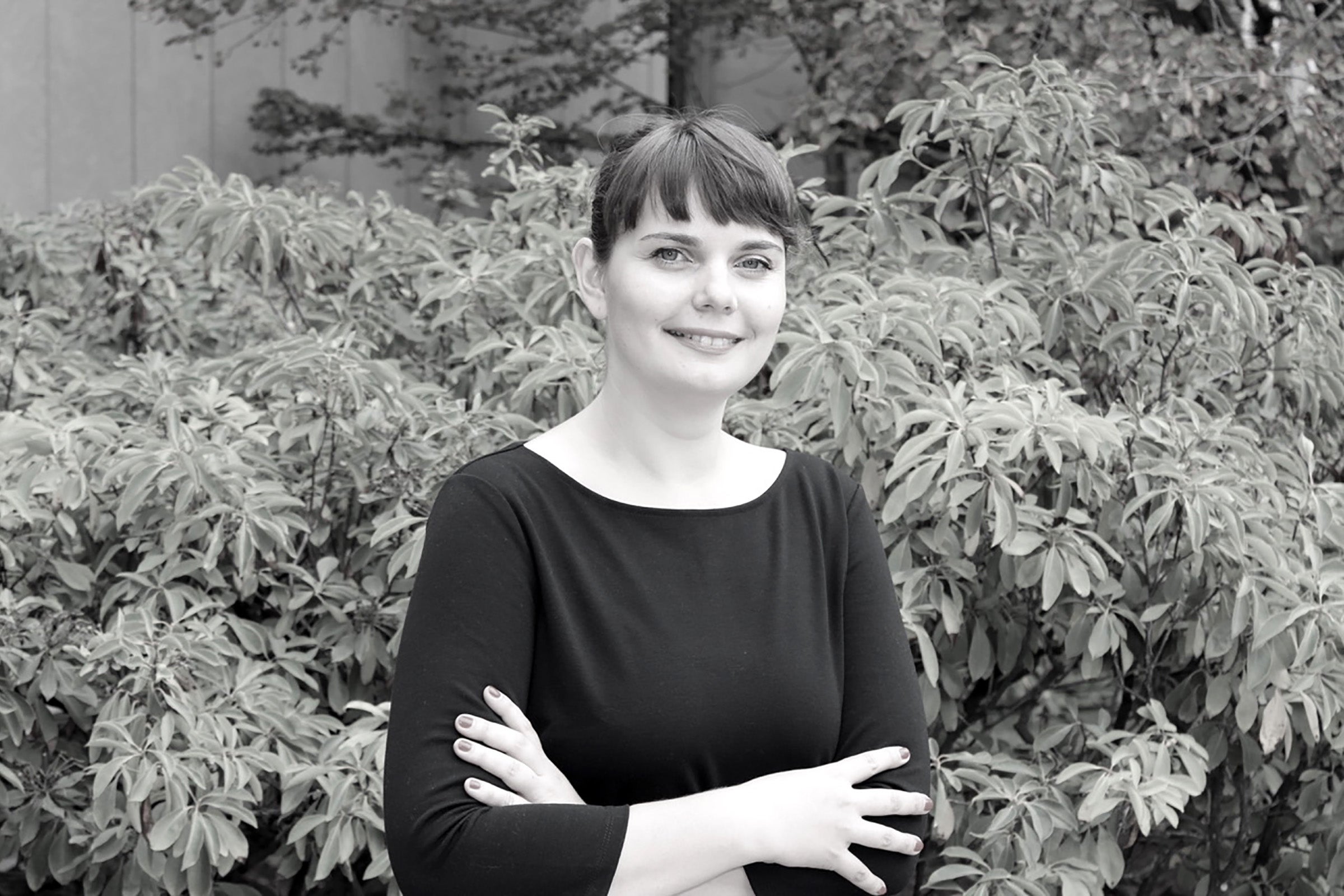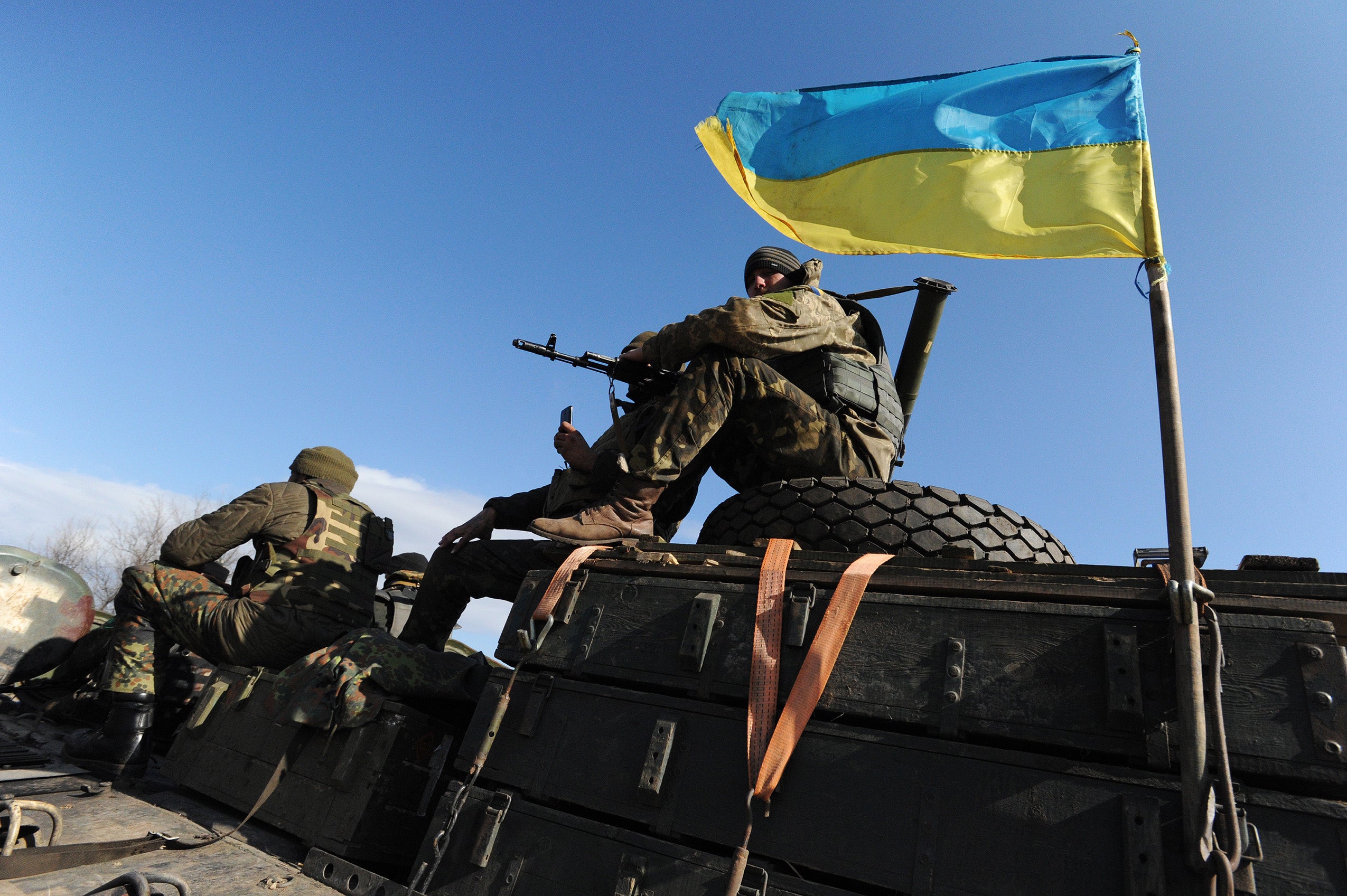Just days after Russia launched a full-scale invasion of her home country, Ukrainian lawyer, international law expert, and then-Harvard Law student Svitlana Starosvit LL.M. ’13 S.J.D. ’22 told Harvard Law Today that Russian leader Vladimir “Putin’s short and long-term objective is crushing in the most humiliating way what Ukraine has been building over the last three decades: an independent and free society.”
A year later, we caught up by email with Starosvit, who had previously worked in Ukraine’s Ministry of Justice and Ministry of Foreign Affairs and is now a visiting researcher at Harvard Law School and the 2023 International Law Fellow at American Society of International Law, where she is working on a Ukraine-related project. She shared her perspective on the historic causes of the ongoing war and the chances, and risks, of a negotiated peace.

Harvard Law Today: Can you briefly remind us how Ukraine secured independence after the fall of the Soviet Union?
Svitlana Starosvit: When the Soviet Union collapsed, there was no self-evident path forward for its constituent parts. There was only a strong desire to break with what was widely perceived, including in Russia, to have been an irredeemably dysfunctional communist regime. The legitimacy of any unions on the territory of the former Soviet Union had run out in the absence of ideology to keep it all together.
In the 1990s, accepting what had been the internal administrative borders of the Soviet Union as international borders was a conscious and strategic choice made by reformists elites in Russia, Ukraine, and Belarus to dissolve the Soviet Union. In this sense, Ukraine’s desire for self-determination was not secessionist (or, to quote President George H.W. Bush’s notorious “Chicken Kiev” speech, it was not “suicidal nationalism”). Ukraine did not tear itself away from the USSR. It, along with Russia, helped bring the USSR to an end. For Ukraine, its sovereignty, borders, and the right for self-determination were resolved in 1991.
HLT: How did Russia react to Ukrainian independence?
Starosvit: Russia’s strategy has been to simultaneously support the legality of the post-Soviet territorial solution while systematically rejecting Ukraine’s rights as a sovereign state. Russia has artificially created a “postponed” secessionist situation in which it reimagines Ukraine’s statehood as uncertain and as an unfortunate obstacle in uniting unjustly scattered Russian populations.
HLT: Why do you think Russia has taken that approach?
Starosvit: Without going into too many details of what happened in Ukraine and Russia in the last decades, it is apparent that the two countries embarked on starkly divergent paths that came to redefine their national projects. Russians were hit hard by their loss of identity, the second such loss they suffered within a century (first tsarist, then Soviet). Putin took office in 2000, in the aftermath of a deep financial crisis, and began consolidating power. He moved the national discourse backwards to old Soviet myths (of which Kyiv — “the mother of all cities in Russia” — played an important role), sought to monopolize the glory of victory in World War II, and prioritized Russia’s gains in foreign and military affairs over domestic development (as in the Soviet past).
“Russia’s strategy has been to simultaneously support the legality of the post-Soviet territorial solution while systematically rejecting Ukraine’s rights as a sovereign state.”
HLT: How did Ukraine see its path following independence?
Starosvit: There can be no easy definition of Ukraine’s national project. There is, on one hand, a deep vein of distrust of government and politicians — a lesson learned from 70 years under the communist regime, the catastrophic deprivation and confusion of the 1990s, and the failed reforms of 2000s. On the other hand, there is a strong sense of shared values resting on tolerance, individual rights, dignity, and public participation. It is as if there are two Ukraines, an official and unofficial one, with the unofficial Ukraine being more powerful, resolute, cosmopolitan, and wise than the official picture can capture. One thing is clear: Ukraine perceived its entry into statehood in 1991 as its best hope for the future.
Instead of looking backward to its Soviet or more distant past as did Russia, Ukraine aimed to forge a new national identity. A diverse state sitting at the crossroads of geopolitics and ideology, it could not support an authentic and unifying image by making appeals to a particular history, language, or ethnicity. This was candidly explained by Ukraine’s second President, Leonid Kuchma, in his book “Ukraine Is Not Russia.” The national discourse in Ukraine was mostly forward-looking and policy-focused with people forcefully rejecting attempts to polarize society. This was demonstrated by the sweeping election victory of President Zelensky across the country, a candidate who was largely unconcerned with identity politics.
Ukraine’s distinctive search for national identity often seemed to confuse Russia and the West, who both sometimes misinterpreted it as reflecting deep internal divides. In fact, Russia was too often successful at portraying Ukraine as a formally independent, yet not so fully sovereign (or simply failed) state in many political controversies. That was before February 2022.
HLT: What do you think about calls for Ukraine to try again to negotiate an end to the war with Russia?
Starosvit: I am deeply worried about the way discussions of a negotiated peace often assume territorial concessions. Setting aside for the moment that such concessions would reward the aggressor and destabilize the world order, unreflectively redrawn borders — blind to the fact that Ukraine’s ethno-cultural diversity does not readily translate into political differences — could backfire and prolong instability.
“I am deeply worried about the way discussions of a negotiated peace often assume territorial concessions. … Attempts to stabilize the region with politically unacceptable territorial concessions will not bring stability and peace.”
With nothing self-evident in the discourse of self-determination, no global public authority to forge an agreement, and with a confusing Ukraine, it can look like giving up certain regions might be a good idea or at least a stabilizing one. Such an approach implicitly harbors the image of Ukraine’s statehood as not clearly established and, therefore, susceptible to various experiments in the name of peace.
It also assumes that certain parts of Ukraine’s communities naturally belong with Russia based on various criteria such as language, culture, or ethnicity. It is hard to see how this approach will mobilize at least a glimpse of political acceptance, given that even Russia’s propaganda machine — which worked tirelessly for decades trying to divide Ukrainian society based on attitudes towards history, language, Soviet nostalgia, and ethno-nationalist beliefs — failed dramatically. Attempts to stabilize the region with politically unacceptable territorial concessions will not bring stability and peace.
HLT: Do you think pressure from the international community might help bring about some sort of end to the war?
Starosvit: Coordinated international pressure was, and remains, vitally important for Ukraine. The ineffectiveness of Putin’s political and military strategy largely resulted from the domestic political context in Ukraine, particularly the degree to which his ‘one nation’ myth was rejected by Ukrainians. A year of forceful resistance from everyone from soldiers to farmers proved that Putin was dead wrong. Putin also failed to foresee the world’s reaction and the international political context more broadly. He seems to have imagined a replay of his invasion of Crimea in 2014 and East of Ukraine, which inspired only a modest international response. Instead, this war has been an unmitigated political disaster for Russia.
“This war has been an unmitigated political disaster for Russia.”
HLT: What has been Russia’s reaction to the international community’s condemnation and resistance?
Starosvit: International coordination has had some paradoxical effects. On one hand, large-scale aggression mobilized an unprecedented international coalition in support of Ukraine — support Ukraine cannot do without. On the other, the coalition is Western and democratic in its sensibility and orientation, so Russia has sought to re-focus attention from its unprovoked aggression to the one-sided instrumentalization of the international diplomacy concerning Ukraine. “Pay no attention to atrocities in Ukraine, to asymmetry in power between Russia and Ukraine, to lack of any justifications for this war,’’ Russia suggests. “Instead, focus on the fact that the United States and its allies are acting like global police, again.”
Russia’s narrative is notably appealing to many global players. By exploiting the vulnerabilities of our deeply fragmented international order, Russia retains international political power, all too easy to underestimate, creating an alternative political context that undermines the effectiveness of coordinated pressure on behalf of Ukraine. Plus, many economic, cultural, and historic ties in the post-Soviet space makes it harder to isolate Russia in any real and effective way.
None of this is to suggest that sanctions are meaningless, but their potency and speed have to be assessed against a deeply fragmented international order that makes it practically impossible to completely isolate a country of Russia’s size.
Want to stay up to date with Harvard Law Today? Sign up for our weekly newsletter.
